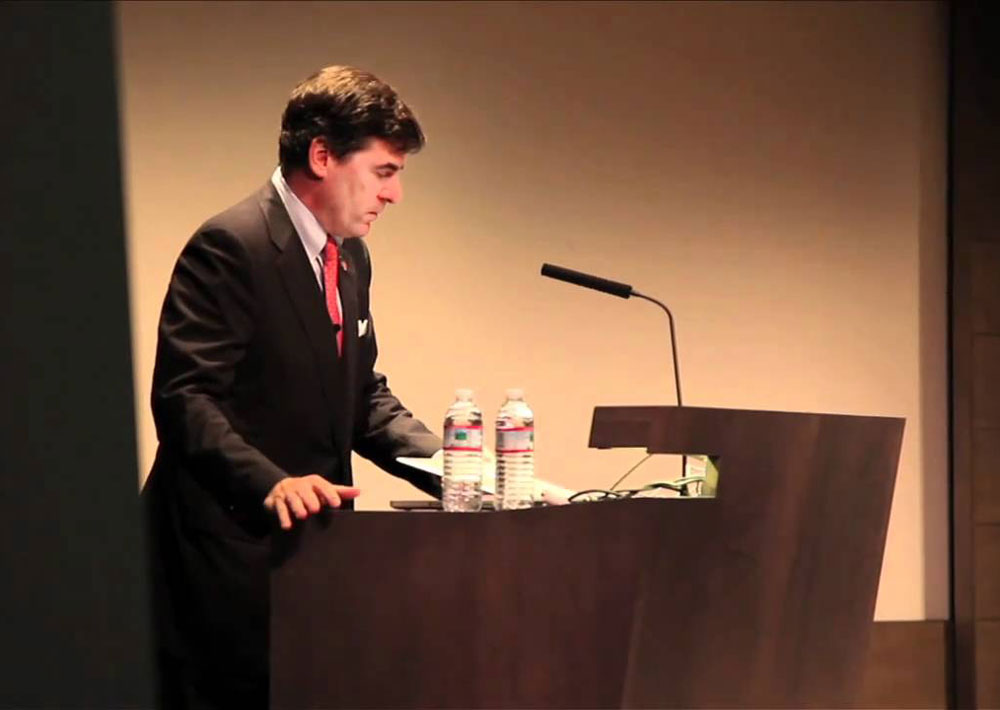
October 14, 2019; Williamsburg Yorktown Daily
Mitchell B. Reiss was CEO at Colonial Williamsburg for just five years. He’ll be departing at the end of the month, as he announced he would in June. Before that, he was at Washington College in Chesterton, Maryland, for four years before leaving the presidency there. In both places, Reiss was expected to rebuild the business model; in both cases, it appears, he got part way through a turnaround, complete with a number of firings, before leaving in a way some observers saw as abrupt.
When Reiss left Washington College in July 2014, the move apparently irked a local Maryland paper, the Chestertown Spy, which ran an editorial titled “Mitchell, We Hardly Knew Ye,” which described his tenure as comprising a kind of “reign of terror.”
Over the course of his four years at Washington College, Reiss retired, reorganized, or forced resignations from almost every member of the College’s senior management team, including the chief academic officer, chief financial officer, chief development officer, chief enrollment officer, chief technology officer, as well as the student affairs and communications directors.
As shocking as that might be, this tactic has become the norm as colleges start to mimic the for-profit sector. Faced with daunting demands for revenue from student enrollment and fundraising to pay for fancy physical plant improvements, scholarships, and high administrative salaries, the instinctive desire to get “new blood” is a common one.
But the consequences of those decisions are keenly felt. There has been community pain, premature career terminations, personal financial loss, and the creation of a certain toxicity that comes to all institutions where anyone and everyone feels they will be the next head to roll.
This was followed, the editorial continued, with “his remarkable decision to immediately depart after just building his new management team.”
Sign up for our free newsletters
Subscribe to NPQ's newsletters to have our top stories delivered directly to your inbox.
By signing up, you agree to our privacy policy and terms of use, and to receive messages from NPQ and our partners.
Apparently, this new standard was perfectly acceptable to the Colonial Williamsburg Foundation board of directors, who have hired Dr. Reiss as the foundation’s new CEO. But for many in the greater Chestertown community, there remains a moral question of when should a leader leave?
Is it enough to take a place apart without sticking around to prove that it has all been worth the pain?
Reiss was brought in to help the 90-year-old Colonial Williamsburg Foundation stop hemorrhaging money and losing visitors. By this account, results under Reiss have been mixed, with some “improvements and some declining figures.” But, in June 2017, “Reiss also made headlines with the “fundamental restructuring” of Colonial Williamsburg, in which 333 employees were either laid off or outsourced to outside companies.” This, even as Reiss received $100,000 pay bonuses in 2016 and 2017. In 2017 his total compensation package up to $817,214 in 2017.
On the other hand, if Colonial Williamsburg’s experience with Reiss has been problematic, you’d never know it by its public statements:
“Mitchell has worked successfully to help Colonial Williamsburg navigate unprecedented cultural and technological shifts, building a record of solid accomplishment under his tenure,” [Board of Trustees Chairman Thurston Moore] said. “On behalf of the Board of Trustees and all of Colonial Williamsburg, I want to thank Mitchell and Elisabeth Reiss for their dedication and service, and for helping to build a stronger Foundation.”
So it goes. Reiss will move on, and only time will tell if the moves made to begin this turnaround were correct. In his 2018 report to the organization’s supporters, he wrote, “It is encouraging to be able to report that, operationally, this Foundation is stronger than it has been in decades. There is work left to be done, certainly, to ensure its financial future. But it is gratifying to be able to write that we are back on a sure path.”
Too bad he won’t be around to ensure the path is negotiated properly.—Ruth McCambridge













